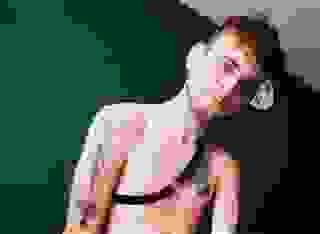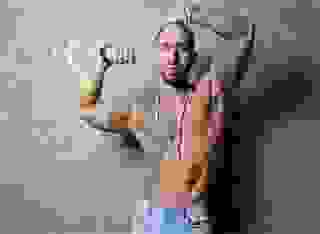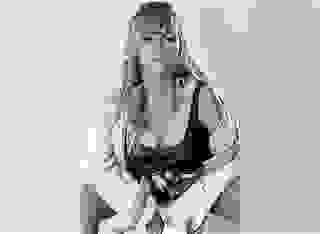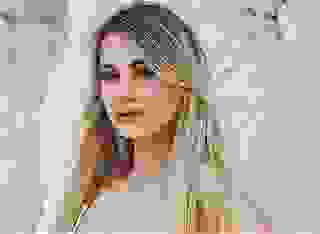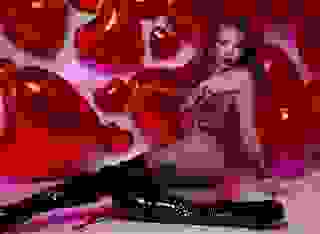- Gay Male
- Played for a Fool in Kibris
Note: You can change font size, font face, and turn on dark mode by clicking the "A" icon tab in the Story Info Box.
You can temporarily switch back to a Classic Literotica® experience during our ongoing public Beta testing. Please consider leaving feedback on issues you experience or suggest improvements.
Click hereApril 1st, 2019
I extracted Hakan's hand, with a regretfully voiced, "I've got to dress and run to catch my ride," and struggled to zip my shorts up in the forced sitting position I was in in the low tent by the Salamis dig.
"I'll take a camp car and drive you to Ercan Airport later myself. We have time, Evan—"
"No, we don't have time, Hakan," I said. "We're out of time for this. It's been nice—a good addition to the excavation experience, but, if I'm going to get my flights back to the States, I have to leave now."
"So, I'm just a, what do they say, a joy stick for your only-today fun?" he asked, putting his face into a fake pout.
"Close," I said, and we both laughed. "But, as much fun as it was, it wasn't only-today fun. You've had your fun too." And, I thought, don't try to tell me I'm the only one you've been spiking during this archaeological dig session.
"What Turk couldn't have fun with you? We love the German tourists here—blond, blue-eyed, buff, sexy, willing."
"I'm an American and I'm not a tourist," I said. "And no one beats Turks for sexy."
"Well, the good part, then—blond, blue-eyed, buff, sexy, and, most important, willing." He put on a serious face then and asked, "You'll come back next year?"
"If I can get on the program again, yes, definitely." Stretched out beside me in the small tent, he pulled my face down to his and we kissed. His hand went to my basket, but I brushed it away, and sat back up, turning to push the last of my scant possessions into my duffle bag.
"Same day, next year, if you can," Hakan said, "on the steps of the Selimiye Mosque in Lefkosa. We'll arrange a time by e-mail."
"Why there?" I knew that, by Lefkosa, he meant Nicosia, the capital of Cyprus, as the rest of the world knew the divided city. The Turks, including the Turkish Cypriots living on the north third of the island nation, used the Turkish names—"Lefkosa" for the capital city and "Kibris" for the island.
"My father owns a restaurant near there, where I work. I don't think I will be engaged to continue this archaeological dig next year. I most likely will be there then. I want to see you again. I want to be moving inside you again, Evan."
He'd reached out for me again as I was sliding my T-shirt down my torso, but I broke away from him, grabbed up my duffel, and struggled out of the tent.
I tossed back, "Yes, April first, next year, in Lefkosa, if everything works out," as I departed.
It took a half hour for the others who were going to the airport to form up, and I kept my eyes on Hakan's tent the whole time, aching to be back there, aching to be saddled on him, riding the twenty-six-year-old Turkish hunk's cock again. I hadn't lied when I said I thought Turkish men were the sexiest men alive. And why did they seem to only get sexier with age. There had been more than one older Turkish archaeologist from the sponsoring nearby Eastern Mediterranean University on this dig who I'd wanted to lie under.
Why did Turkish men have to be so sexy and so self-assured—and so cruel in sex? I had been on a three-week spring break continuing excavation project on the ancient Cypriot east coastal city, Salamis. It had been a Greek city state-turned Roman city that had mostly gone under water in a third-century earthquake. The public areas of the city had remained on, and covered by, the ground. There were being slowly, methodically excavated. I was a sophomore at Arizona State, in archaeology studies. I was gay and experienced, but nothing had prepared me for the allure and seduction of the Turkish Cypriot, Hakan, who was on the staff of the excavation project this spring—or of Turkish men in general.
Hakan and I made eye contact as soon as I had arrived at the camp. He came to me to chat, found out what he needed to know, and offered to take me to a club that night. The club was an open-air one on the water north of the Salamis Bay Hotel and within walking distance of our camp. The entertainment area was surrounded by a high bamboo fence. The music was loud, the young men were gyrating and friendly and flirting, and the Efes beer was flowing.
I staggered back toward the excavation camp at two in the morning, arm in arm with Hakan, who wasn't nearly as tipsy as I was. That seemed OK. I was being given a day of rest the next day to recover from the flights from the States before I had to start digging. We only made it as far as the Salamis Bay Hotel, where Hakan had friends who gave him the key to an unreserved room.
In Cyprus less than fourteen hours and I was naked on my back on a hotel room bed, my back arched and my pelvis elevated, with my legs, fisted at the ankles, raised and spread, and a hung, handsome, muscular, hirsute young Turk crouched between my thighs, feeding a thick long cock inside me, and making me yodel to the ceiling. Turks are great lovers, but they are rough and cruel. I'd struggled a bit at first, but he was having none of that. He slapped me around a bit and wrestled me under his control on the bed. I hadn't been treated like that in sex before. It was embarrassing, but I found it took me to new heights of arousal, the sensation of being taken without permission—and taken hard—even though I was aching to be taken by this Turkish hunk. Hakan fucked the shit out of me. He made me his.
I had not known I'd come to Cyprus—Kibris to the Turks on this side of the Green Line—to spend most of my time wondering when the next time I'd have Hakan's cock working inside me—and not just Hakan's. More than once an older, thicker-bodied EMU professor, Tabib, fucked me too, which gave me a sample of Turkish men to generalize and approve of as lovers. I'd assumed I'd come to gain experience and credits toward an archaeology degree and bask in the Mediterranean sun. But for months after I'd returned to Arizona, that's what I thought of—a swarthy, smiling, Turkish hunk on top of me, sliding inside me, fucking me.
Three weeks later, I was standing by an old van, waiting for those going to the airport to gather, and watching his tent, wanting to be in there, with him.
"Well, shit," I thought, not surprised, as I saw Onur, one of the young men who helped prepare and serve the meals, a year or two younger than my twenty-one, slip into the tent. When he did so, the flap didn't come down all the way on the entrance. He didn't come right out. I had been denying it to myself, but of course I knew Hakan was fucking other guys than me. He was randy and sexy. Of course he was fucking the other, tanned, blond, and fit male students. I wouldn't be surprised if he fucked the women students too. I'd heard, only in partial jest, that it was "any available hole" for a randy young Turk.
The last ten minutes of my vigil before the van left was of Onur, naked, saddled on Hakan's pelvis, and riding his cock in the same position I'd been in earlier in the morning.
So, I'd just been a fool. It was the day for it, April Fool's Day, but I couldn't say I had regretted any of the innumerable cock rides I'd taken on a young, Turkish hunk, in the previous three weeks. I'd just not expect an e-mail from Hakan anytime soon. He'd gotten what he wanted.
* * * *
April 1st, 2020
Hakan didn't meet me when I arrived at Ercan Airport in Turkish Cyprus. I didn't really expect him to. We'd arranged to meet in Lefkosa—the Turkish name for the divided capital city of Nicosia—the afternoon of April first, not at the airport. But I hadn't been in contact with Hakan for more than two weeks. We hadn't settled on a time and he hadn't assured me in specifics that he'd meet me anywhere. In my last contact with him, he'd said he was in Lefkosa, at his family restaurant. The closet I had to a meeting point and time was the steps of the Selimiye Mosque, formerly St. Sophia's Catholic cathedral from the Richard the Lionhearted period of the island's history, within the ancient city walls of Lefkosa.
I'd managed to arrive in Cyprus—or, as the Turks called the island, Kibris—on the morning of the first, which was not easy to set up, as the only flights into Ercan Airport were from Istanbul and I had to stay in Istanbul a couple of days before that happened. I wasn't due at the Salamis dig until April 6th, the start of a new round of student excavation sessions. But, before communications had been cut off, Hakan had indicated I could stay with him at his father's house at the family restaurant in Lefkosa and Hakan would give me a tour of the Turkish side of the island and deliver me to Salamis, on the east coast, when I was expected there. Ercan was between Lefkosa and Salamis, but closer to Lefkosa. I had no accommodations at Salamis for nearly a week—the excavation session prior to mine was still closing up—so there was no reason not to go into Lefkosa and assume the plans with Hakan were still on.
Ercan was a madhouse, as seemed to be the case whenever a flight from Istanbul came in. The terminal was small, not logically laid out, and Turks could make a madhouse out of three people yammering at each other without trouble. The first thing I knew was that a Turkish guy—quite good looking in a rough, swarthy way—was standing in front of me, one hand on the duffel bag I was carrying, and gesturing on where did I wanted to go and why would anyone have a cheaper offer to take me there than his truly, Errol?
Of course he knew where the Selimiye Mosque was in Lefkosa. Of course he could take me there faster and cheaper than anyone else could. Of course if I gave him fifteen minutes, he have his car around to the arrivals area to pick me up. But of course I needed to give him the fare up front.
If only to get him from fluttering all over me, I gave him the money, which seemed high to me, but what did I know? I'd exchanged dollars into Turkish lira already, but I had to go back and exchange more while he was pulling his car around.
After waiting for a good twenty minutes outside the terminal and twice having turned down the offer to take the airport bus into Lefkosa, the bus driver finally said, "This is the last bus into the city until the next flight comes in. That will be several hours from now. You weren't waiting for a man name Errol to take you there, were you?"
The look of snigger on the man's face told me all I needed to know. "Errol's not coming, is he?" I asked.
"No. You've been fooled. He does that here about twice a week. If you want to go into the city, you'd better take my bus now." He named the price. It was a lot less than I'd given Errol, but it was that much over what I'd already parted with and, one foot in Cyprus, I already was close to broke.
I took the bus. It wasn't lost on me that this was April Fool's Day.
* * * *
Waiting on the steps of the Selimiye Mosque wasn't an option. The French Romanesque origins of the structure, dating to 1193, when Richard the Lionhearted gave the island to the French Lusignan's, the displaced Kings of Jerusalem, were obvious. But whereas the examples of this style in France included commanding steps up to the façade, here there was only one step up from the ground. There still was a dusty courtyard in front of it, though, and after I'd roamed around in the interior a bit, I took up station there, my duffel beside me, and waited.
Being a Nordic blond in a Turkish city brought a lot of attention to me as the locals went about their business, crossing the square from the opening of one narrow-street road to disappear into another narrow street road. Sometimes a Turkish man would stop to ask if I was a UN soldier and when I said, no, an American university student, they'd note that the current contingent of UN peacekeeping troops was Danish. The only women who said anything to me in passing seemed to be hoping I was a UN soldier in need of companionship. I no longer was surprised that the Turkish women in Cyprus didn't veil themselves—I had learned that the previous summer. Like mainland Turkey, the women here were a lot less restricted than those in most of the Arab countries.
I'd gotten into Lefkosa in mid afternoon and waited for another hour before I was met. I would have waited longer, though. The day was warm, I'd bought a couple of cold Efes beers at a café on the square, and I had nowhere else to go. I'd passed a couple of seedy-looking hotels on the narrow streets into the center of the octagon-shaped Byzantine walled city that looked like I could find a room at a reasonable rate. This whole central section of the Turkish city half looked seedy, though—but attractively so. I was into archaeology. I could appreciate being steeped in the Ottoman Empire era.
I recognized him—Mustafa, Hakan's father—as he approached me in the square. He obviously had immediately picked me out, as well. He was what Hakan would look like in twenty-five years if he was lucky and Allah favored him. Mustafa was a large man—solidly built, more muscular, though, than fat. He was well proportioned; he just had a lot of meat on the bone. He was dark, sultry, perpetually smiled. He must have been about fifty. He was dark-haired, hirsute, his black hair shot through with gray in an appealing way. He wore well-cut black trousers, open-toed sandals, and a loose cotton shirt, open half way down to the navel, showing that he had the torso of an hirsute Zeus. A medallion on a thick gold chain was nestled between his beefy pecs.
"Evan Nordstrum?" he asked as he approached me.
"Yes, that's me."
"I'm Mustafa, Hakan's father. He told me you were American. But you look like a sunny northern European—Denmark or Norway. I almost overlooked you."
He hadn't overlooked me. I'd seen him scope me out as soon as he'd walked—sauntered, really, in command—into the square, and he'd made a beeline to me. This mosque wasn't really a tourist attraction. I was the only non-Turk roaming about.
"I hope I don't disappoint," I said. He certainly didn't disappoint. But where was Hakan?
"Not in the least. You are a handsome young man," Mustafa said. "Blonds receive extra notice here in Kibris—especially handsome ones. We are really enjoying our Danish UN soldiers. Hakan told me you would be special." He had a rich, baritone voice, with excellent English diction and a British accent. The British—along with most other civilizations—had once held sway on the island—recently in the British case—and he undoubtedly had gone to school under their occupation.
Nice. He was a sexy, mature man. But where was Hakan?
"Where is Hakan?" I asked. "He said he would meet me here today, but he hasn't responded to my e-mails for a couple of weeks."
"I'm so sorry, Hakan is gone."
"Gone?"
"Yes, it happened so quickly. Quite a tragedy." Mustafa lowered his head in an attitude of grief. "He showed me your e-mails before he was gone, though, so I knew—I hoped—you would be here today. I checked with the archaeology project in Salamis, and they said you were still expected there. So, I'll be happy to have you here until you are needed there, and then I'll drive you to Salamis."
"Hakan gone?" I asked again, confused and feeling very, very surreal. But Mustafa was already taking up my duffel bag and putting a hand under my elbow and pulling me up. Then we were walking, out of the mosque—or cathedral or whatever—square and into a narrow street with close-facing ochre-colored stone buildings from some earlier era on either side.
Pulling me along so that I couldn't ask follow-up questions, Mustafa walked not more than two blocks into the narrow streets until he came to a building some sixty feet in width set back from the street to accommodate an outdoor café area, covered by a canvas awning. He walked right through this and into the building, which was outfitted as a restaurant and bar. He didn't stop there, though, saying, "This is our family's restaurant," but went through a kitchen area and then out into a courtyard that looked like it was from the Arabian Nights, complete with palm trees, grape vines, and a burbling fountain in the center inside a tiled seating base.
"This is the house," Mustafa said, nodding to two Turks near to his age and as ruggedly handsome in a swarthy way as all Turkish men seemed to be who were sitting at a café table on straw-seated chairs and smoking cigarettes and drinking sluggish-looking coffee out of china demitasse cups. "We'll put you in a room and then feed you. I'm sure you are hungry from your flight. The restaurant's closed until this evening, but never to me, of course."
He laughed and started climbing a wooden staircase to the second level, which had a covered walkway over the center courtyard around all four sides. All of the doors to rooms, on both the first and second stories, opened directly out into the courtyard. I was to learn, though, that the rooms had internal doors as well, so that you could walk around the three sides on the ground floor without coming outside and all of the way around the upper story. The rooms weren't deep.
He put me in a corner room on the upper story, in a rough-wood fourposter bed that looked like the Ottoman Turks had cleared out forgetting to take it with them. The woodwork was old and wormy. A worn Turkish rug was on the floor. The ceiling was painted in Arabic geometric motifs in faded greens, oranges, and yellows. It was in an advanced state of deterioration but probably all the more beautiful for that—at least to an archaeologist like me. The atmosphere took me right back to an earlier, lazier colonial era.
After he dropped my duffle to establish my temporary domain, Mustafa led me back to the restaurant, where we were the only ones at a table—and I was the only one eating, and where a succession of kabobs and other Turkish Cypriot dishes were forked onto my plate. As we transited the courtyard, we walked once more past the two older men, smoking, sipping coffee, jawing, and ogling me. It wasn't just food I was plied with in the restaurant—the attentive, smiling waiters kept a stream of Efes beers coming in my direction.
And we talked, Mustafa and I, as he said, drinking beer, conversing with me, and occasionally touching my arm or leg, causing chills to run up my spine. He wouldn't talk about Hakan beyond making clear that he knew I'd bottomed for his son, which didn't seem to bother him a bit. But we talked about everything else as well: the Cyprus problem of the island being divided between the Greeks and the Turks, the history of his Ottoman Turk-style house, where I came from in the States and where I hoped to be going from here. The topic landed on archaeology, which he had a different take on than I did.
"I'm not so sure about all this digging into our past here on Kibris," he said.
"What do you mean?"
"We have such a history—from Neolithic and Bronze Age times to the Mycenaeans, the Greeks, the Romans, Cleopatra, the Crusaders, the French Lusignans, the Venetians, the Ottoman Turks, the English, to the chaos we have today. How do you know what era to dig down to and what do you destroy to get there?"
"I see what you mean," I said. "Have you been to the Church of the Pillar—in Paphos, on the west coast—the church that Paul was said to have been scourge on one of his trips across the island. But, oh . . . sorry." Paphos was on the Greek side. Of course, Mustafa couldn't have seen that.
"No, I haven't. But what about it?"
"They're excavating down through the ages under the Anglican church that now is there, and they've tried to bow to what you mean. They've only excavated a fourth of it, at a corner, digging down and exposing but leaving areas of each era showing as they work their way down."
"But they are still destroying sections of the historical layers on their way down," he said.
"Yes," I suppose so, I acknowledged.
"I would be happier if they just stopped digging in new areas," he said. "Anywhere you make a hole on Cyprus, you're going to uncover important history. We can't expose and then preserve it all. We have to live and develop the island for our needs, and we can't afford all of the expense of maintaining whatever we find."
